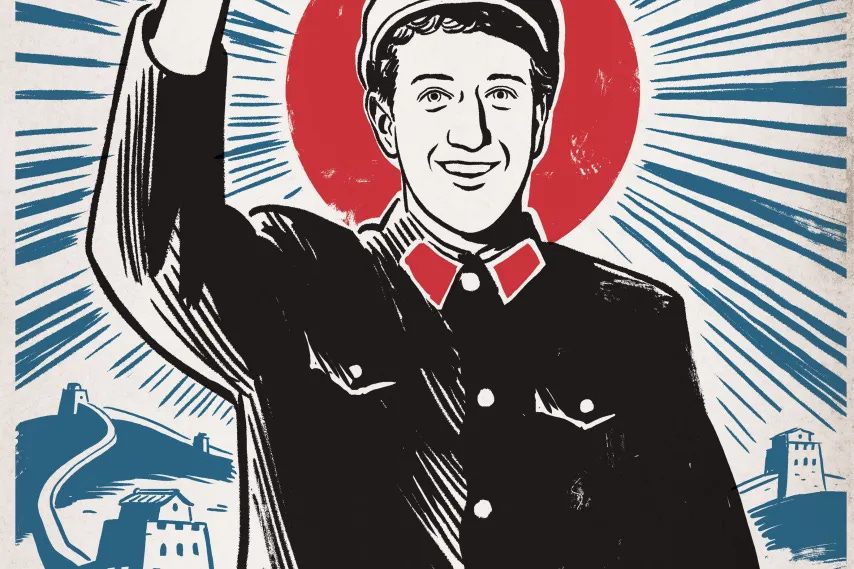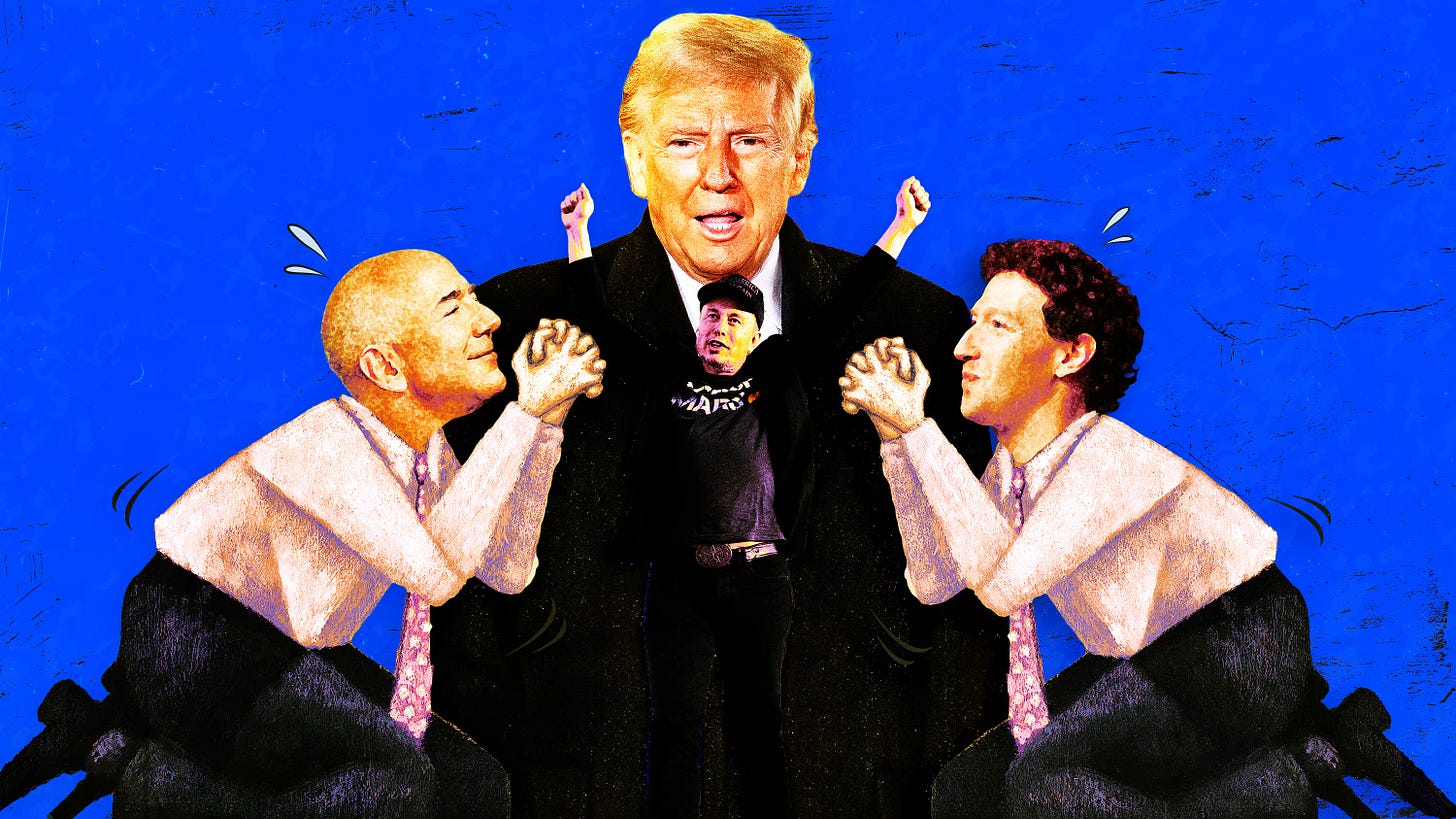Meta’s Whistleblower: The Book They Don’t Want You to Read
The latest exposé on Mark Zuckerberg’s empire has arrived—and Meta’s panicked attempts to bury it have only made it bigger.
Careless People: The Book That Lit a Fire Under Meta
Meta just did the one thing every PR firm, crisis manager, and half-decent intern knows not to do when faced with a damning exposé: they tried to censor it.
And, in true Streisand Effect fashion, they’ve guaranteed that Careless People, the scathing new book by former senior employee Sarah Wynn-Williams, will be a global bestseller.
After spending six years in the inner sanctum of Mark Zuckerberg’s empire, Wynn-Williams has stepped forward with a story that Meta desperately hoped would never see the light of day.
A story that lays bare the tech giant’s hypocrisy, unchecked power, and its Supreme Ruler’s obsession with world domination—both digital and geopolitical.
Meta’s response? Silence her at all costs.
Their first move was to drag her into arbitration, enjoining her from making “disparaging, critical, or otherwise detrimental comments” about the company, its executives, or employees.
Their second move? A frantic attempt to suppress the book itself—because nothing screams we have nothing to hide like legal threats against a whistleblower and a desperate plea to an international tribunal.
Macmillan, Wynn-Williams’s publisher, wasn’t having it. Their response was a blunt middle finger disguised as a press release:
“We remain committed to publishing important books such as this. We will absolutely continue to support and promote it.”
Translation? Nice try, Mark.
Mark Zuckerberg: Free Speech Warrior (For Himself, Not For You)
Let’s talk about irony.
Mark Zuckerberg, who has recently become a loud advocate of ‘free speech’—at least, the kind that benefits right-wing authoritarians— is now using every tool at his disposal to suppress speech that might hurt his empire.
This is the same Zuckerberg who has spent years championing a platform where misinformation spreads like wildfire under the guise of “open discourse.”
The same Zuckerberg whose company has fought against regulations that curb the reach of harmful content.
The same Zuckerberg who, when pressed about Facebook’s role in spreading political extremism, shrugged and called it a marketplace of ideas.
And yet, when it’s his own power under scrutiny? Suddenly, speech has consequences.
It’s almost like this whole “free speech” schtick was never about principle—just about who gets to control the narrative.
A Dictator in a Hoodie: How Meta Became Zuckerberg’s Personal Empire
If there’s one thing Careless People makes painfully clear, it’s this: Meta is not a company. It is a monarchy.
While most tech billionaires at least pretend their board of directors holds real influence, Zuckerberg makes no such effort. Thanks to his special shareholding structure, he holds total, unquestionable control.
According to SEC filings, Zuckerberg could, if he wanted to, sell the entire company against the wishes of every single shareholder and board member.
Which means that Meta doesn’t operate according to market forces, shareholder interests, or even public scrutiny. It operates according to Mark Zuckerberg’s whims.
His obsessions drive the company’s strategies.
His grudges dictate policy shifts.
His personal ambitions determine which countries Meta prioritizes, even if that means cozying up to authoritarian regimes.
And speaking of authoritarian regimes…
Zuckerberg’s China Obsession: Meta’s Biggest Open Secret
For years, Zuckerberg had one major goal: get Meta into China.
He saw it as the final frontier—the one territory where his empire hadn’t yet conquered. And he was willing to make some disturbing compromises to get there.
According to Wynn-Williams’s whistleblower documents, Meta spent years secretly working to develop:
A China-specific censorship system that would allow a government-approved “chief editor” to remove content and shut down the platform during social unrest.
A China-focused engineering team tasked with building a version of Meta’s services that complied with the CCP’s surveillance demands.
A specialized censorship system designed to automatically detect and block restricted terms.
Plans to weaken privacy protections for Hong Kong users, knowing full well what that would mean for activists.
Direct cooperation with Chinese internet regulators—including restricting the account of Guo Wengui, a vocal critic of the Chinese government, at their request.
Let’s pause here for a moment.
For all the U.S. government’s hand-wringing about TikTok being a “Chinese surveillance tool,” here’s a little reality check: Meta was actively trying to build one.
Meta’s China ambitions only ground to a halt when it became politically untenable—not because of any moral reckoning.
And that tells you everything you need to know about how this company operates.
Big Tech and Big Oil: Same Playbook, Different Century
If you read Careless People and feel a creeping sense of déjà vu, that’s because we’ve seen this story before.
Meta—and Big Tech as a whole—isn’t some new breed of corporate villain. It’s just the latest evolution of the same unchecked corporate power that defined the oil, mining, and tobacco conglomerates of the past century.
In the 20th century, it was fossil fuel giants lobbying against climate regulations while poisoning the planet.
In the 21st century, it’s social media behemoths lobbying against digital regulations while poisoning democracy.
Different industry, same strategy:
Build a monopoly
Dodge accountability
Buy out competitor
Exploit every loophole
Cozy up to authoritarian leaders
Silence whistleblowers
And, of course, when people start waking up to the damage? Try to kill the story before it spreads.
But here’s the problem for Meta: That strategy doesn’t work as well when the entire business model is built on virality.
The Revolution Will Not Be Moderated
Meta has spent two decades convincing us that it is too big to regulate, too powerful to challenge, and too entrenched to dismantle.
Wynn-Williams’s book shatters that illusion.
It shows us that, beneath the trillion-dollar valuation and Silicon Valley mythmaking, Meta is still just a company run by a small man who can be outmaneuvered, exposed, and held accountable.
Zuckerberg wants to suppress this story.
So let’s make sure everyone reads it.
Because, in the end, the real threat to Meta isn’t government oversight. It’s something far more dangerous: an informed public that refuses to look away.










Shared ironically on fbook - lol. Let's see if they take it down
Should I buy it on Amazon? That just doesn’t seem right to me. Convenient, but not right.